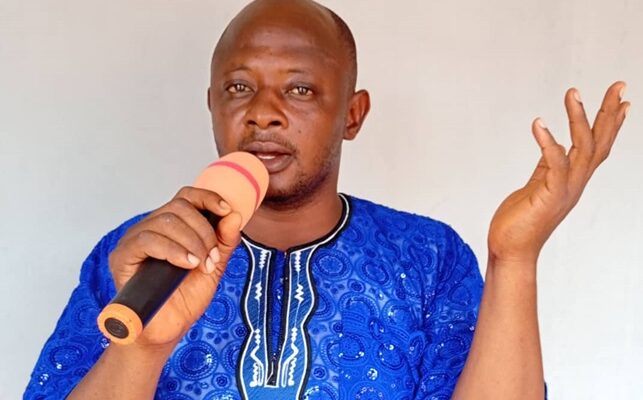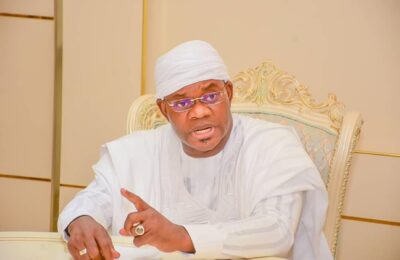It is a tragedy clothed in piety—a nation kneeling before the altar of breakthrough yet shackled by the chains of misplaced supplication. We chant, we fast, we groan, and yet the heavens seem like brass. Our fathers prayed. We inherited the altars. We built more cathedrals. We held vigils, sowed seeds, screamed prophecies, and drank anointing oils—but the land still groans with hunger, corruption, aimlessness, and systemic collapse. Why? The answer lies not in the silence of God, but in the misdirection of our petitions. We pray amiss.
The recent viral outcry of a Nigerian man, who after 43 years of relentless service to God renounced his faith in favour of Satan, is not merely a personal rebellion—it is a national mirror. A mirror cracked by desperation and fogged with spiritual disillusionment. A man who gave his sweat, his youth, and his allegiance to divine service, only to be rewarded with hunger, homelessness, and mockery. And in his voice—raw, trembling, defiant—was the cry of millions whose faith has been kneaded into poverty, whose hope has curdled into heresy.
“I gave God 43 years of my life, and I still dey beg for food,” he said. That declaration, laden with pain and irony, echoes like thunder across a people who have traded practical wisdom for prophetic entertainment.
We have turned prayer into performance, altars into theaters, and pastors into celebrities. We ask for rain but never till the ground. We cry for favour but reject diligence. We command wealth but despise discipline. We fast from food but feast on gossip. We speak in tongues but not in truth. We pray amiss.
In the heart of the Nigerian prayer tradition lies a paradox—intensity without direction, passion without precision. Religion has become the national pastime, yet not our national conscience. We have mastered the art of intercession but forgotten the science of innovation. We wage spiritual warfare against enemies that diligence and strategy could have defeated.
Prayer is not magic. It is not a replacement for responsibility. It is not a divine ATM. And God is not a sugar daddy that dispenses miracles on the basis of noise. The Apostle James, in ancient Scripture, wrote with eerie precision: “You ask and receive not, because you ask amiss, that you may consume it upon your lusts.” That is, we ask from God what we are unwilling to build with God. And when the results delay, we switch altars. From Calvary to shrines. From Christ to charms. From fasting to feathers and blood. This is the spiritual migration of a desperate people—those who served, yet starved.
But we must pause and ask: was it God who failed, or did we build our prayers on a foundation of ignorance?
How can a nation that prays this much be this confused? How can we bind demons in churches but submit to them in elections? We cast out spiritual serpents but invite political ones. We fast against delay but walk slowly to knowledge. Our tongues are aflame with declarations, but our hands are idle.
Indeed, we do not lack faith. We lack alignment. We lack purpose. We lack honesty. We pray for open doors but do not knock. We cry for power but avoid responsibility. We pray for peace but instigate division. Even in our altars, tribalism breathes. Even in our pulpits, egos roar. Even in our prayers, envy simmers. How then shall the heavens respond?
Nigerian religious expression has become a double-edged sword—liberating many but misleading more. Our pulpits preach prosperity without process, miracles without mindset, elevation without ethics. And thus, we raise a generation that knows how to cry, but not how to create. That knows how to bind but not how to build.
When we say “God will do it,” we often mean “I don’t want to do it.” When we cry “It is well,” we often mean “I am afraid to confront reality.” When we say “I receive it,” we often mean “I refuse to work for it.” Prayer has become a smokescreen behind which we hide our laziness, our entitlement, our fear of failure.
The God who called men like David and Daniel and Deborah never excused sloth. He empowered effort. He blessed the work of hands, not the work of idle chants. In Nigeria, we have confused spirituality with superstition. We have painted poverty with divine hues. We equate suffering with holiness. We glorify endurance but vilify excellence. And so, we keep praying—with broken systems, bad governance, failed schools, weak leaders—and expect angels to fix what men destroyed.
The man who turned to Satan was not the first. Others have done it quietly, secretly, disillusioned by unanswered prayers and transactional sermons. His case just went viral. But the real question is not about him—it is about us. How many more are on the edge, tired of religious pretense, choking on unmet expectations, emotionally bankrupt but spiritually busy?
We pray amiss because we do not think. We pray amiss because we do not learn. We pray amiss because we have handed over to the altar what we should have committed to the boardroom, the classroom, the parliament, and the farm.
God is not mocked. He is not a magician to be manipulated with noise. His promises are yes and amen, but they are not void of process. He fed Elijah, yes, but only after the brook dried and the prophet moved. He provided manna, but only after bringing the people out of Egypt. He multiplies loaves, but only after someone offers what they had.
This is what we must understand: Prayer is not a substitute for thinking. It is the fuel of action, not the replacement for it.
So, let the nation cry. Let the prophets speak. But let the people also work. Let them study. Let them plan. Let them vote wisely. Let them lead with integrity. Let the youth not just fast, but build. Let the churches not just sing, but serve. Let the mosques not just bow, but also build communities.
We are not cursed. We are just confused. Not by demons, but by doctrine. Not by witches, but by warped theology. And until we realign our prayers with purpose, we will continue in this cycle of frustration—speaking in tongues, yet walking in circles.
The heavens are not deaf. But the questions we ask, the desires we nurture, the motivations we harbour—many are out of sync with the heart of the God we cry to.
We pray amiss.
– Inah Boniface Ocholi writes from Ayah – Igalamela/Odolu LGA, Kogi state.
08152094428 (SMS Only)




